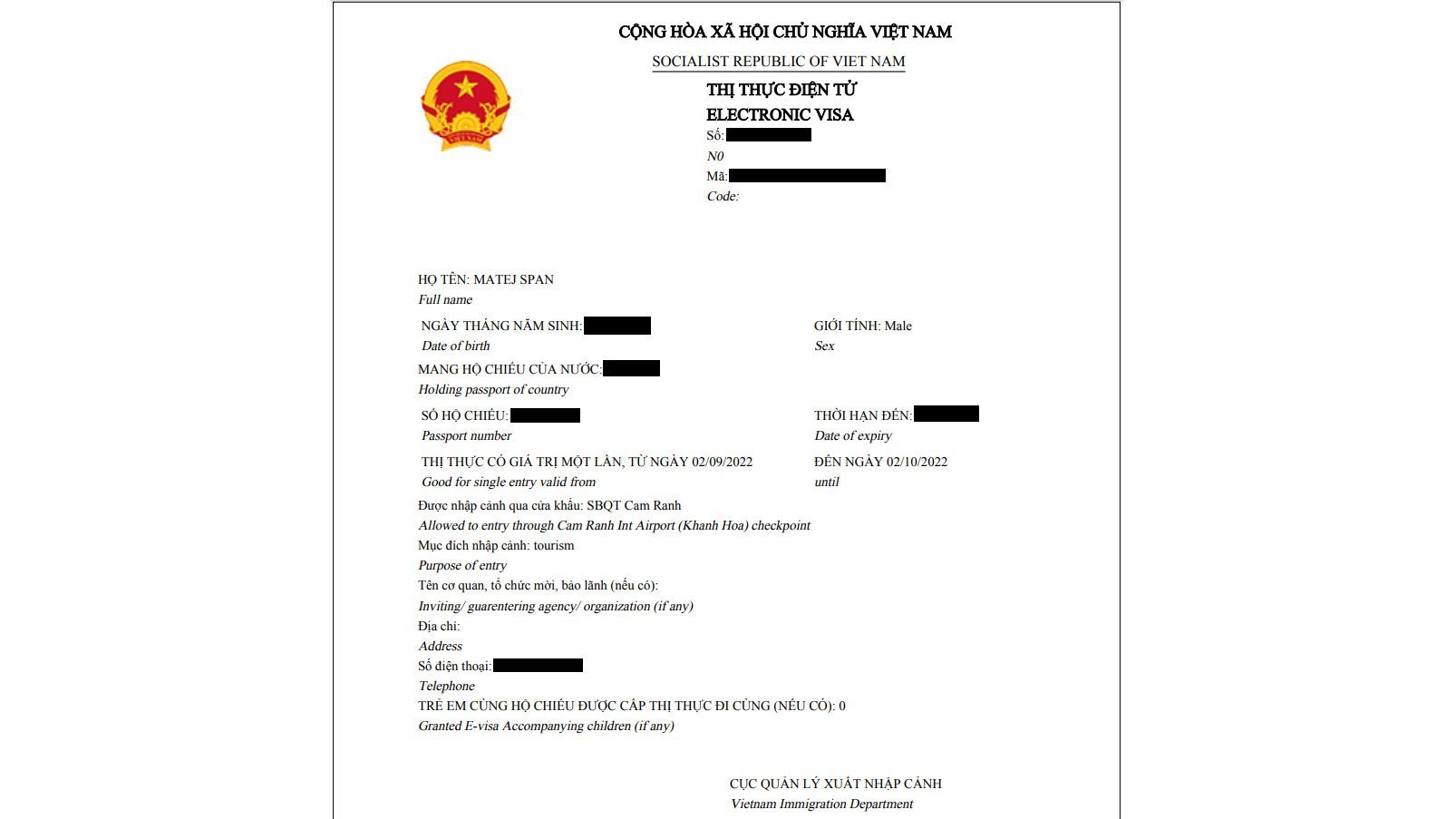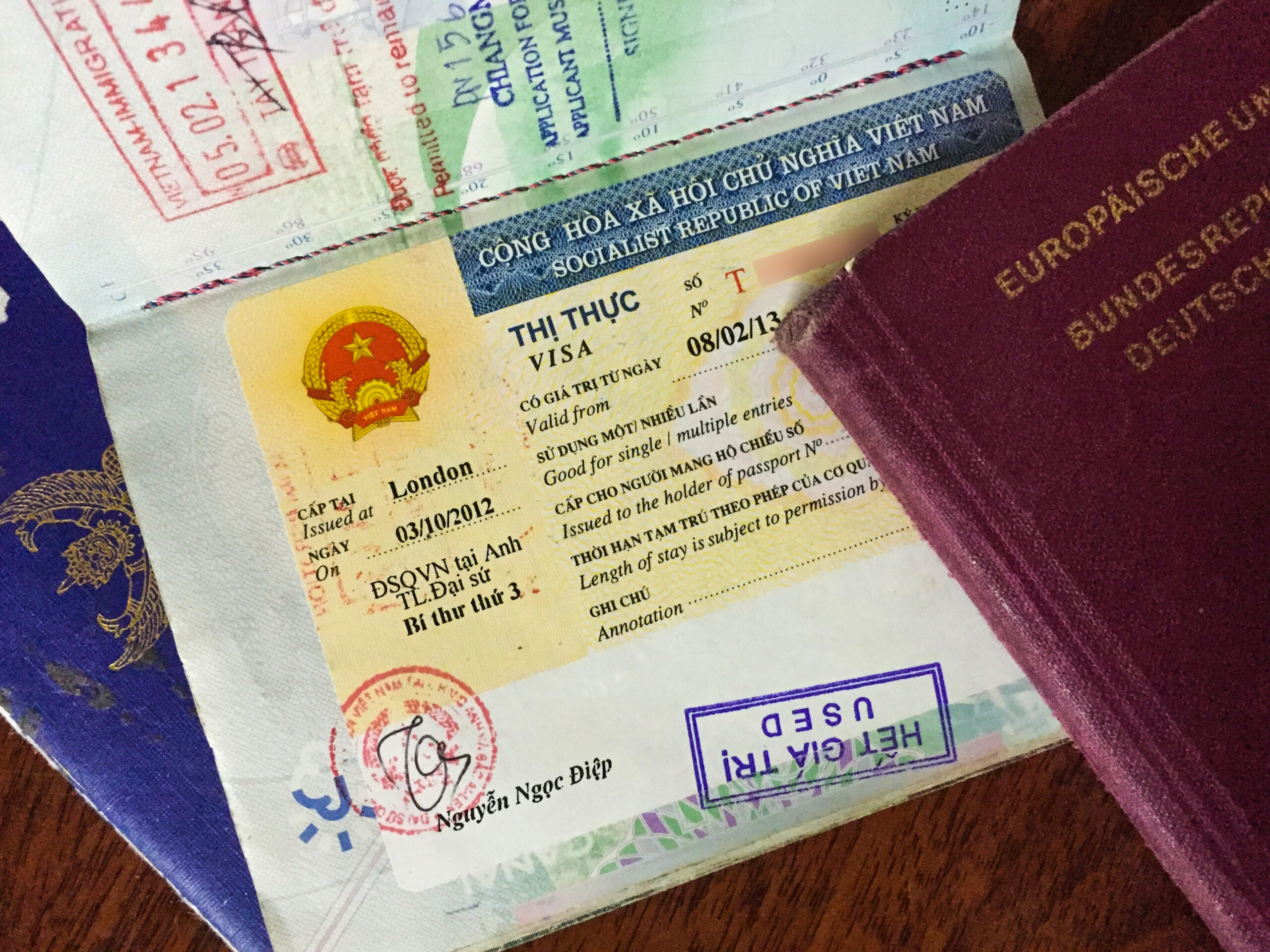

Navigating Vietnam’s visa options can be challenging with various types tailored to different purposes and durations. Whether you're traveling for tourism, business, work, or family visits, understanding the visa options and their application processes is crucial for a smooth experience. This guide will help you identify the best visa type for your trip, outlining how to obtain each one and their respective advantages and disadvantages.

The E-Visa is an electronic visa that simplifies the application process. It's designed for short-term tourism and business visits.
- How to obtain: Complete the application form online. You will need to upload a digital photo and a picture of your passport.
- Processing time: It is typically processed within 3 - 4 working days.
- Validity: Up to 90 days.
- Convenient and easy online application.
- Quick processing time.
- No need to visit an Embassy or Consulate.
- The stamping fee is inlcuded in the fee paid advance, no need to pay in cash at the airport.
- Allows entry through international checkpoints including airports, seaports and land border gates
- No refund if application is denied.
- Only available for certain types of visas, such as tourist visas and business visas.

The Visa on Arrival is a popular option for those arriving by air. It's suitable for tourists and business travelers but requires pre-approval before arrival.
- How to obtain: Request a visa approval letter from an authorized visa agency in Vietnam. You will need to complete an application form and upload a photo of your passport.
- Processing time: Visa On Arrival usually requires 5 to 7 working days to process.
- Validity: Up to 180 days for certain purposes.
- Convenient and easy to apply online.
- No need to visit an Embassy or Consulate.
- Offers averagely faster processing time in urgent cases.
- Requires the Visa approval letter in advance.
- Follow-up procedure is required at arrival airports to get visa stamped.
- Must apply through an agent/company/organization in Vietnam.
- Works only with air travel.
- Fees must be paid upon arrival.

You can apply for a Vietnam visa at the nearest Embassy or Consulate of Vietnam in your home country. Visas obtained through Vietnamese embassies or consulates are suitable for various purposes, including tourism, business, work, and family visits.
- How to obtain: You can submit your application either in person or by mail to the Embassy of Vietnam.
- Processing time: From 3 to 5 working days (after all required documents submitted, and may be depended on the Embassy/Consulate office you applied at)
- Validity: Up to 5 years.
- Can be obtained for any type of visa, including long-term visas such as work visas and student visas.
- Visa is already stamped onto original passport before departure to Vietnam.
- The application process can be complex and bureaucratic.
- Time-consuming due to long wait times for appointments, processing, and potential follow-up.
- Need to travel to the Embassy, which can be inconvenient.
- May require additional documents, such as a valid passport, proof of financial support, and a letter of invitation from a Vietnamese sponsor, and other required documents depending on your purpose of entry.
Selecting the right type of Vietnam visa depends on your travel plans and preferences.
If you require flexibility and are arriving by air, a Visa on Arrival (VOA) might be the best choice.
The E-Visa is suitable for those who want a quick and easy process, plan to stay for a short period, and wish to enter Vietnam through various types of entry points including land, sea, and air.
However, if you are a student or worker planning a longer stay in Vietnam, applying for a visa through the Embassy would be the most appropriate option.
Consider your specific needs and travel circumstances to make the most informed decision.
Send us your questions. Our experts will answers.
Ask your questionOur support gurus are here to help you solve all your challenges. Check out our FAQs, send us an email, or give us a call.
